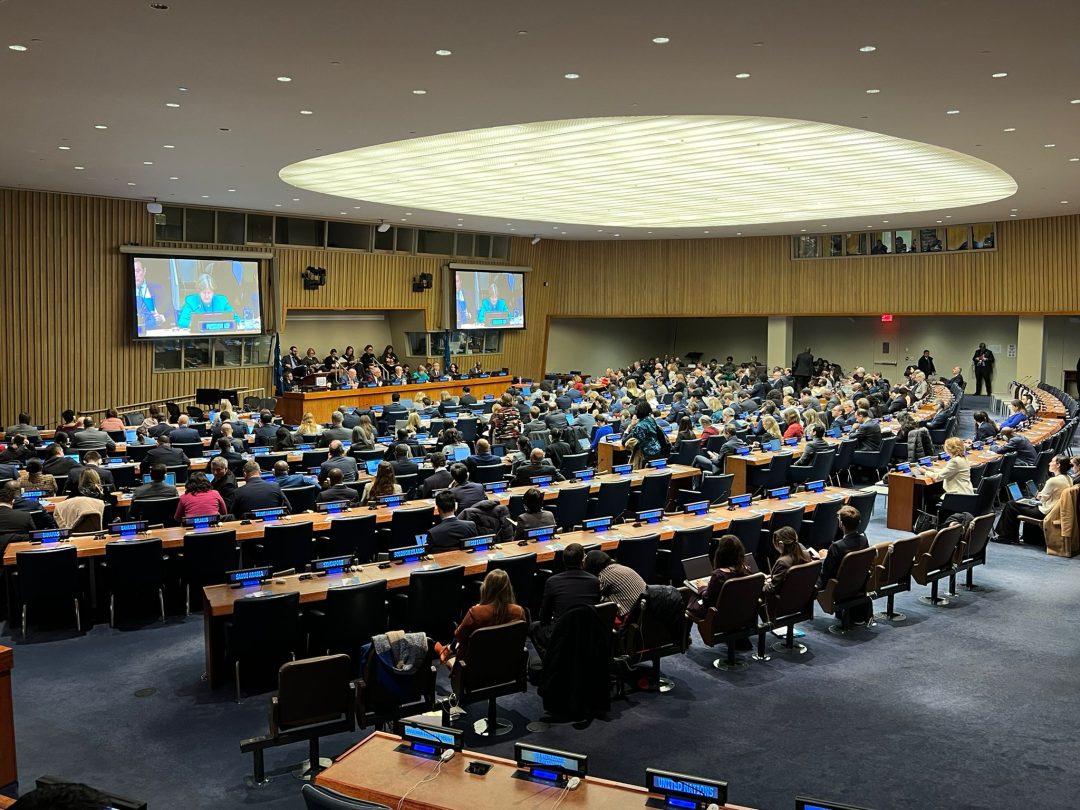The Wayamo Foundation, in collaboration with Switzerland, Liechtenstein, Germany, and France, is hosting a side event titled “A Crack in the Wall: Universal Jurisdiction, Open Source Evidence, and Accountability in Hard Cases (An opportunity for Sudan?)”. The side event will take place on 6 December 2023 between 13:15 – 14:30 in Conference room 9 at the Assembly of States Parties of the International Criminal Court (ICC) in New York.
Following opening remarks by Wayamo Foundation Director Bettina Ambach and Ambassador Sandra Lendenmann Winterberg, Vice Director, Directorate of International Law, Federal Department of Foreign Affairs of Switzerland, the event will feature a discussion with:
- Quscondy Abdulshafi, Senior Regional Advisor-Africa, Freedom House
- Lindsay Freeman, Director of Technology, Law, and Policy at the Human Rights Center, UC Berkeley School of Law
- Nema Milaninia, Special Advisor to the U.S. Ambassador-at-Large for Global Criminal Justice
- Christian Ritscher, Special Adviser and Head of the United Nations Investigative Team to Promote Accountability for Crimes Committed by Da’esh/ISIL (UNITAD)
- Amanda Ghahremani, Legal Consultant, International Criminal Law & Redress for Survivors of Atrocity Crimes
The discussion will be moderated by Mark Kersten, Assistant Professor of Criminology and Criminal Justice, University Fraser Valley, Canada and Senior Consultant, Wayamo Foundation.
Over the last decade, advocates of international criminal law have become increasingly creative – because they’ve had to. Their thinking outside of the box has been driven by hard cases: situations where recourse to bodies like the International Criminal Court (ICC) or the creation of new tribunals has been made impossible by geopolitical roadblocks.
Undaunted, advocates have refused to accept that there is no work to be done. On the contrary, faced with such hurdles, novel efforts to collect and preserve evidence and to share it with relevant domestic prosecution authorities have been developed. Among the consequences of this has been a resurgence in the exercise of universal jurisdiction for international crimes as well as a growing interest in gathering open source evidence.
In the Syrian situation, for example, the only meaningful criminal accountability for international crimes committed in the country’s civil war has been delivered by national courts systems in Europe exercising universal jurisdiction thousands of miles away from where the international crimes were perpetrated. Some of those cases have relied on evidence gleaned from open source information collected and verified by numerous open source investigation platforms.
More can and should be done to understand these developments and to identify the ways in which universal jurisdiction can be better exercised concurrently with the proliferation of open source investigations. More attention should likewise be paid to how this can be done in contexts outside of Europe. In Sudan, for example, a huge amount of open source information and evidence has been collected by specialised organisations, detailing international crimes and rampant human rights abuses.
Yet with an over-burdened ICC, a lack of ICC jurisdiction over atrocities committed outside of the territory of Darfur, and geopolitical indifference to accountability in the country, what can be done with this evidence? Why should States Parties in Sudan’s neighbourhood of East Africa not be encouraged to pursue a case in line with universal jurisdiction as a means to offer even a modicum of justice for the thousands of victims of atrocities in Sudan? How can the exercise of universal jurisdiction be ‘democratised’ and its use promoted beyond the ‘Global North’?
Since the outbreak of the armed conflict in Sudan in April 2023, the Wayamo Foundation has worked to train investigators, lawyers, and journalists on the importance of documenting evidence of atrocities and the possibility of identifying states that could exercise universal jurisdiction over international crimes committed in the country. Such an approach could be – and should be – emulated in other ‘tough cases’ too. The panellists will therefore explore the current state of universal jurisdiction, whether its use can be further globalised beyond the West, and the relevance of open source investigations to building universal jurisdiction cases.


